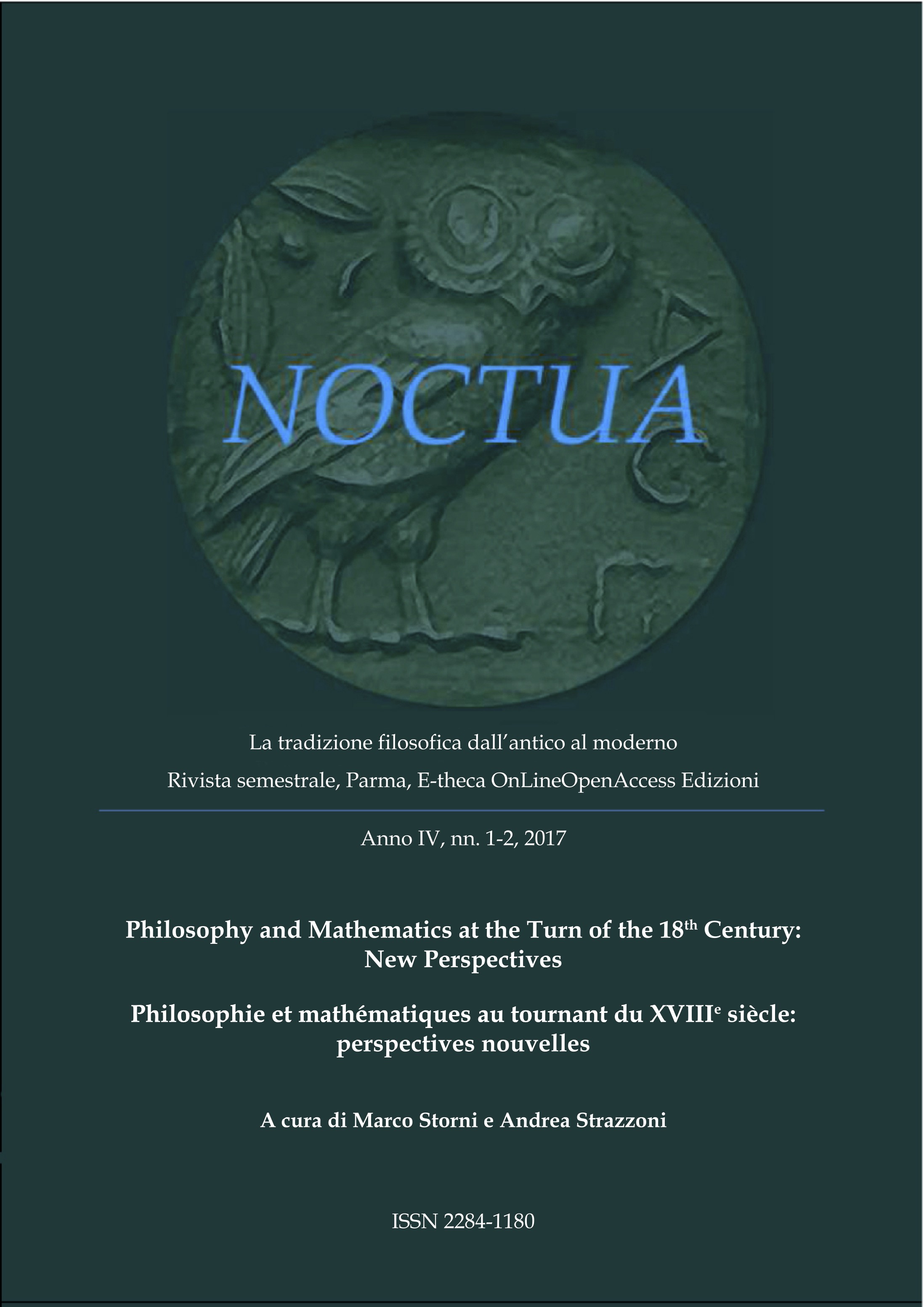Wolff and Kant on Reasoning from Essences
DOI:
https://doi.org/10.14640/NoctuaIV5Parole chiave:
Euclid, Immanuel Kant, mathematics, modal metaphysics, Christian WolffAbstract
Wolff and Kant agree that the «mathematical method» is, generally speaking, the axiomatic-deductive method of Euclid’s Elements. Each demonstration is carried out with recourse to an individual geometric figure in order to prove a general proposition about said figure with apodictic certainty. Although this figure is an individual, say a triangle, it can be used to prove propositions which hold for all triangles: it is an individual which represents the universal. While Wolff and Kant agree that these are the steps comprising the mathematical method, they disagree on the scope of its application. Wolff thinks that a thing in nature can also be treated like a geometric figure, i.e., that one can demonstrate general and certain propositions from it. This paper will discuss the metaphysical underpinnings of Wolff’s application of the mathematical method to natural philosophy. Specifically, it will take up Wolff’s modal metaphysics, as it pertains essences, which, on my interpretation, explains why Wolff thinks he can treat a thing in nature as an individual which represents the universal. I will then present Kant’s arguments against such a theory of essences and explain why this precludes the employment of the mathematical method in natural philosophy, for Kant.
##submission.downloads##
Pubblicato
Fascicolo
Sezione
Licenza
Noctua pubblica contributi Diamond Open Access secondo i termini della licenza CC BY / Noctua publishes Diamond Open Access contributions under the terms of the CC BY license.







